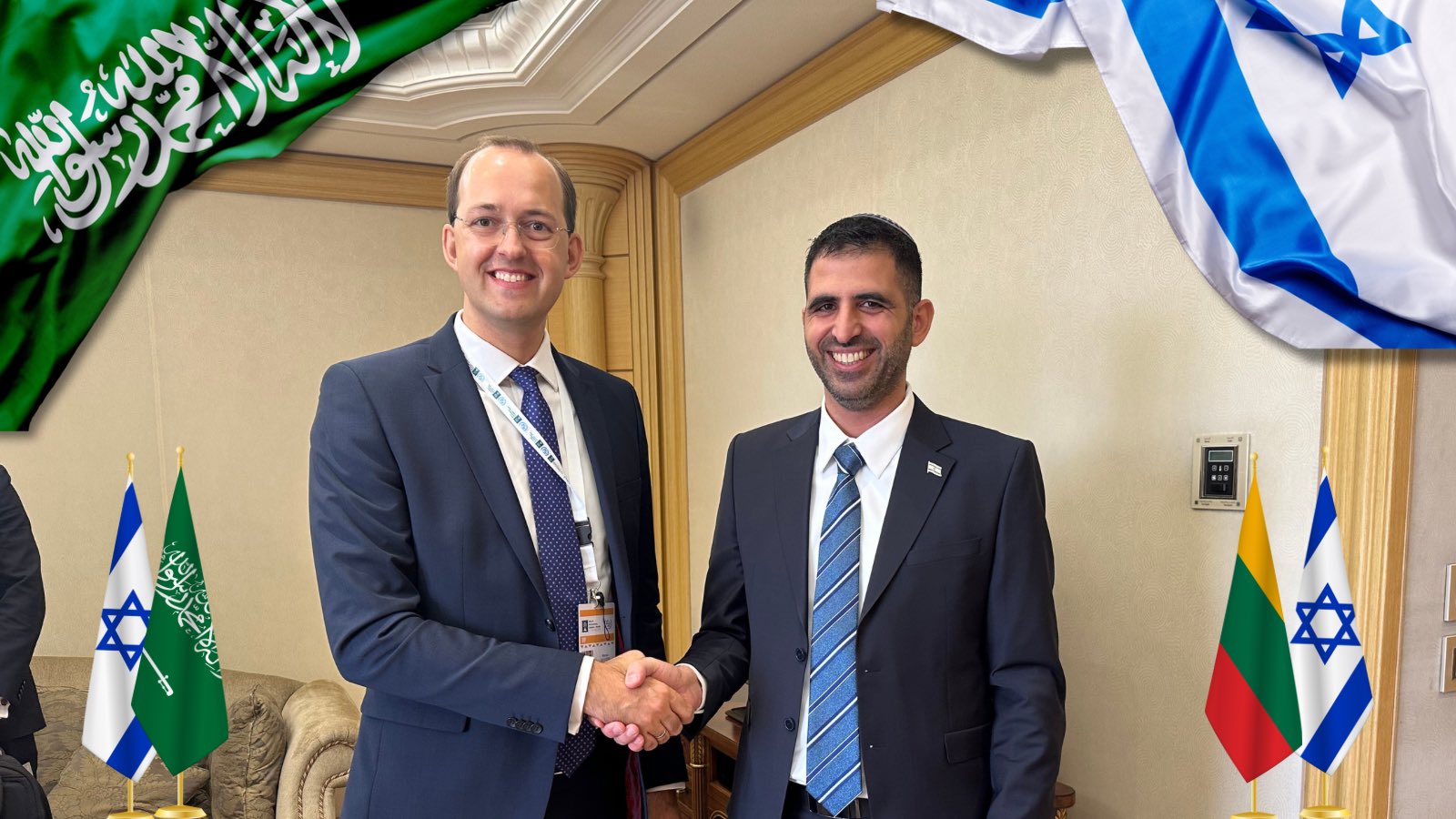Riyadh, Saudi Arabia – In a historic diplomatic event, Israeli Communications Minister Shlomo Karhi delivered a speech in Saudi Arabia on Wednesday, becoming the first Israeli politician to do so in a country that had no prior diplomatic ties with Israel, Jerusalem Post reported.
“We greatly appreciate the tireless efforts of the leaders of Saudi Arabia, and our Prime Minister, Benjamin Netanyahu, for nurturing the blossoming ties between our nations,” Karhi told the Universal Postal Union’s Fourth Extraordinary Congress.
Karhi, dressed in a blue suit and a crocheted skullcap, addressed the audience in English from his seat, holding a handheld microphone. His speech not only discussed Israel’s plans to privatize its postal services but also acknowledged the ongoing U.S.-led efforts to normalize relations between Israel and Saudi Arabia.
“Today, as I stand before you, I am reminded of the great leaders of our past, who envisioned a world united in purpose, and bound by shared values,” Karhi said, emphasizing the historical significance of this diplomatic moment.
Karhi went on to highlight the India-Middle East-Europe Economic Corridor announced by U.S. President Joe Biden, which is expected to pass through Israel, Jordan, the United Arab Emirates, and Saudi Arabia. He used a small optical fiber cable as a symbol of the corridor’s potential to connect Asia and Arab countries to Europe, linking diverse cultures and nations.
“This is the same route that Abraham, our common ancestor, walked thousands of years ago,” he explained, emphasizing the cultural and historical connections this corridor could foster.
Karhi also referenced the 2020 U.S.-brokered Abraham Accords, which led to normalization agreements between Israel and four Arab countries: the United Arab Emirates, Bahrain, Morocco, and Sudan, highlighting the transformative power of diplomacy and shared goals.
The Israeli minister concluded his speech with a blessing in Arabic, expressing a desire for peace. His visit to Saudi Arabia follows Tourism Minister Haim Katz’s visit to the country, underlining the growing trend of diplomatic engagement between Israel and Saudi Arabia.
In the context of these diplomatic efforts, the United States is actively pursuing a security pact with Riyadh, which includes the Israeli normalization deal and potential interim agreements with the Palestinians. US officials, including White House Coordinator for the Middle East and North Africa Brett McGurk and special energy envoy Amos Hochstein, have engaged in discussions with Saudi Arabia’s Crown Prince Mohammed Bin Salman.
US Secretary of State Antony Blinken is reportedly scheduled to visit Israel and the West Bank, indicating the continued commitment to the diplomatic process. While key elements for normalization are on the table, formalizing the terms of these agreements remains a complex process that requires significant diplomatic efforts.








